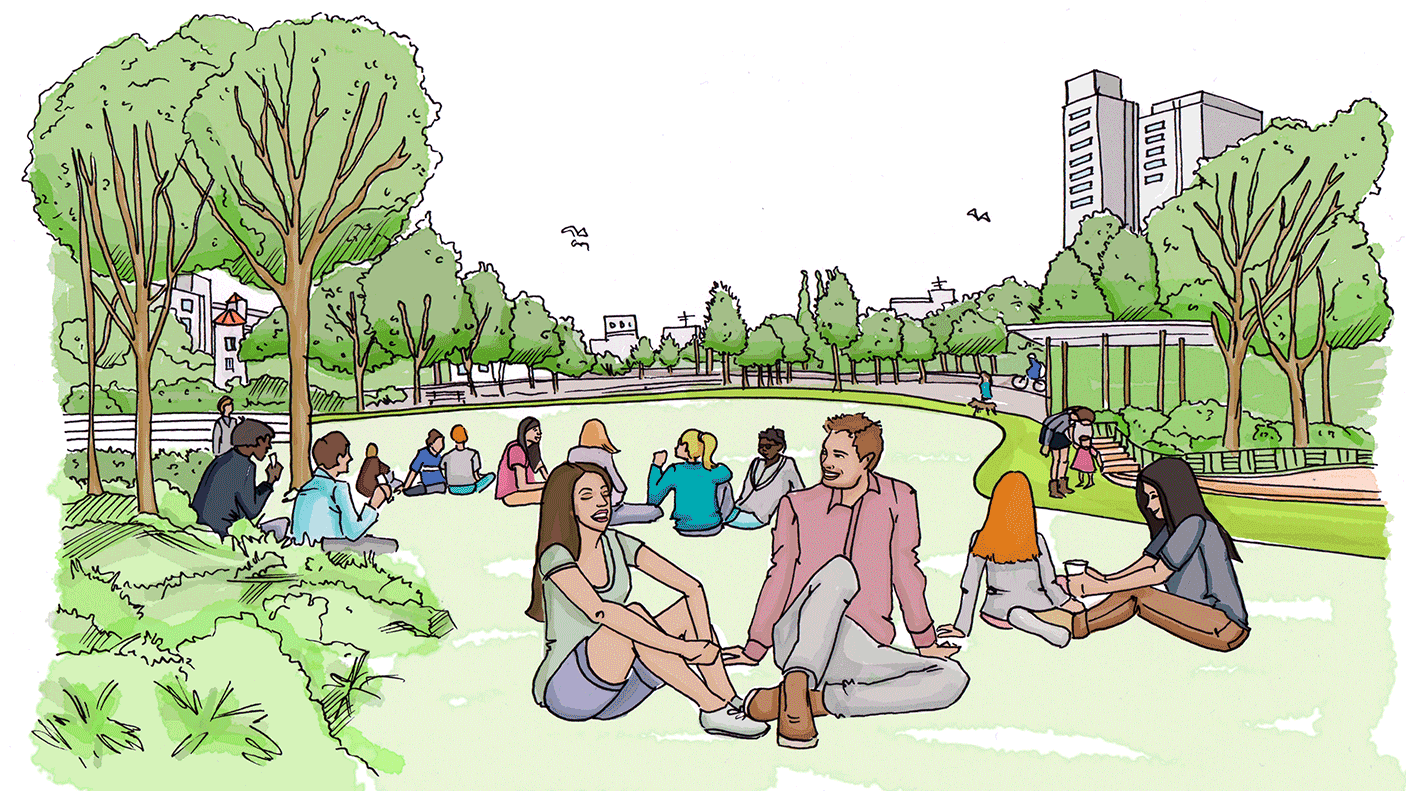The term inflammatory bowel disease (IBD) encompasses: ulcerative colitis, Crohn’s disease, and microscopic colitis. Each of these conditions has slightly different symptoms however the treatments are all focused on the primary goal of reducing inflammation in the body — particularly the gut.

Is IBD the same as IBS?
No. The main difference is that IBS (irritable bowel syndrome) does not cause inflammation, ulcers, or damage to the gastrointestinal system. It is less serious but still includes difficult symptoms such as cramps, bloating, gas, mucus in the stool, diarrhea, constipation, or both. Typically, anemia, weight loss, bleeding, and fever are not seen in IBS. Both IBD and IBS can be very tough on emotional, social, and mental health.
A normally functioning immune system defends the body from disease and infection. In a healthy response, when the body fights off invaders, the digestive tract becomes inflamed until the infection is gone. In IBD, the digestive tract can become inflamed even when there’s no infection present. The immune system attacks its own cells instead, called an autoimmune response.
Crohn’s Disease
Most common in the colon and ileum but flare ups can occur anywhere along the digestive tract, from mouth to rectum. Symptoms include: abdominal pain, weight loss, malnutrition, and fever. Less frequent symptoms include a fever lasting about 24-48 hours, canker sores in the mouth, clubbed fingernails, and thickening of the gastrointestinal (GI) lining which may cause blockage. The inflammation comes and goes and occurs more deeply than compared to ulcerative colitis (see below). If abscesses and fistulas form, surgery may be needed.
Ulcerative Colitis
Continuous inflammation occurs in the mucosal lining of the colon and/or rectum. The most common symptoms include abdominal pain, diarrhea, and blood in the stools. The requirement for surgery and/or cancer is high. Current medication regimens have been focused on decreasing inflammation as it is theorized that leaky gut and poor mucosal immunity may be the primary cause.
Microscopic Colitis
With a colonoscopy, all appears normal, however, under a microscope inflammation is seen. Characterized by diarrhea (which can come or go), cramps, abdominal pain, fatigue, fever, or joint pain. Theories about the origin include an autoimmune disease, bacteria or virus, or excessive use of NSAIDs. Similar to Crohn’s, it can come and go with flare-ups and healing.
Cause
The exact cause of IBD is unknown and can depend on the individual. It typically involves a combination of genetics and environment. Up to three million Americans have IBD and the condition affects all ages and genders. It’s most common to start between the age of 15 to 30.
-Genetics – family history
-Immune system malfunction
-Bacteria, viruses, antigens
-Stress
-Smoking
-Unhealthy gut bacteria
-Neurotransmitter or hormone imbalances
Symptoms
Symptoms vary from person to person and not everyone will experience all of these. Sometimes there will be severe flare-ups while other times few or no symptoms at all.
-Weight loss
-Extreme fatigue
-Stomach pain, cramps, bloating
-Frequent or bloody diarrhea
-Fever
-Nausea or vomiting
-Anemia
-Joint pain
Triggers
In all types of IBD and IBS, it is important to find the underlying cause of triggers. Symptoms can come and go, which makes it difficult to pinpoint the cause.
-Stress
-Smoking
-Alcohol
-Inactivity
-Diet
-Medication noncompliance
-Antibiotics
-Infections
Complications
In addition to a negative impact on quality of life, people with IBD have a higher risk for complications such as:
-Anemia: low levels of red blood cells.
-Anal fistula: tunneling that forms under the skin from the anal gland to the anus.
-Osteoporosis: bone weakening.
-Liver disease: damaged liver (cirrhosis or scaring).
-Perforation: a tear or hole in the large intestine.
-Toxic megacolon: extreme intestinal swelling.
Treatment
The goal of IBD treatment is to reduce the inflammation that triggers symptoms. Treatment varies according to the individual but typically involves a combination of medications, diet therapy, lifestyle changes, and surgery.
Common prescribed medications
Common medication treatments recommended by physicians include:
-Aminosalicylates: anti-inflammatory medicines that can decrease irritation.
-Antibiotics: may be used after a surgery or to treat infections or intestinal sores or abscesses.
-Biologics: these can interfere with signals from the immune system that cause inflammation in order to decrease it.
-Corticosteroids: these decrease the activity of the immune system which can help manage flares.
-Immunomodulators: act to ease an overactive immune system.
Common over-the-counter medications
Over-the-counter medications can also be helpful (with physician approval):
-Anti-diarrheals
-Nonsteroidal anti-inflammatory drugs (NSAIDs)
Alternative therapies
Alternative treatments may be used alongside conventional treatments, but only with physician approval. Some of these have not yet been scientifically proven as a treatment for IBD and may not be appropriate for your condition or medical history.
–Probiotics (L.acidophilus, bifidobacteria, Saccharomyces boulardii)
-Address diet and nutritional deficiencies (iron, B12, copper, folic acid)
-Promote healing (antioxidants including vitamins A, C, E, K, selenium, zinc, omega-3, glutathione, glutamine)
-Consider food sensitivities and reduce irritants such as high fiber, spicy, greasy, or dairy foods.
-Eat smaller, more frequent meals (every two to four hours).
-Stress management such as meditation, gentle movement or yoga, and listening to music.
-Smoking and alcohol cessation
-Regulate weight and regular activity
-Therapy or counseling: cognitive behavioral therapy
-Getting enough good quality sleep
Surgery
In some cases, when medication doesn’t help improve symptoms, surgery is needed as a treatment for IBD. For Crohn’s disease, a bowel resection may be recommended. This is when the injured or infected portion of the bowel is removed then the ends of the healthy bowel are reconnected. For ulcerative colitis, the recommended surgery may be removing the colon and connecting the small intestine to the anus. There will be an ileal pouch which can help collect stool.
Be your own expert.
Nori supports you in being your own expert by assisting you in identifying the culprit of your condition. We will help guide you through discovering, identifying, and taking action to change what is making you sick. It’s not just you, studies show that it can take well over 21 days to build a habit.
The main source of material was adapted from: Lipski, Elizabeth, Ph.D., CCN, CHN: Digestive Wellness 4th Ed. McGraw-Hill; 2012



